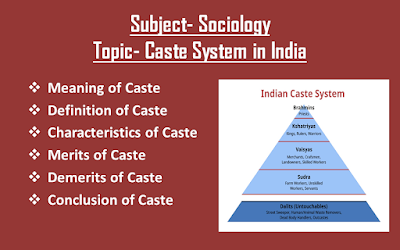Anti-social Groups- Meaning, Definition, Characteristics and Importance
For example, terrorist groups, criminals, thieves, murderers, anti-government or anarchist group and so on are the instances of anti-social groups.
# Definition of Anti-social Groups
1. According to Emile Durkheim:- "A group that rejects and undermines social norms, values, and institutions, often characterized by anomie and disintegration."
2. According to Max Weber:- "A group that actively opposes and challenges social order, often driven by charismatic leadership and ideological conviction."
3. According to George Herbert Mead:- "A group that develops a shared identity and collective behavior that is in opposition to societal norms and expectations."
4 According to Talcott Parsons:- "A group that fails to internalize societal norms and values, often leading to deviance and social disorganization."
5. According to Robert K. Merton:- "A group that rejects societal goals and means, often adopting innovative, ritualistic, or rebellious behavior."
# Characteristics of Anti-social Groups
1. Rejection of social norms:- Anti-social groups reject conventional social norms, values, and expectations.
2. Opposition to authority:- They oppose authority, institutions, and established power structures.
3. Engagement in illegal activities:- Anti-social groups often engage in illegal or harmful activities, such as crime, violence, or substance abuse.
4. Focus on individualism:- Anti-social groups prioritize individual interests or group goals over collective well-being or social responsibility.
5. Promotion of alternative lifestyles:- Anti-social groups often promote alternative or countercultural lifestyles that reject mainstream values.
6. Use of violence or intimidation:- They may use violence, intimidation, or manipulation to achieve their goals or control others.
7. Lack of empathy:- Members may exhibit a lack of empathy or impulse control, leading to harmful behavior towards others.
8. Secretive or exclusive nature:- Anti-social groups may be secretive or exclusive, with members hiding their activities or identities from others.
9. Charismatic leadership:- Some anti-social groups may have charismatic leaders who attract and influence followers.
10. Rejection of social responsibility:- Anti-social groups reject social responsibility and accountability for their actions.
# Importance of Anti-social Groups
1. Anti-social groups challenge existing power structures and promote social change.
2. Anti-social groups provide a platform for marginalized voices and perspectives.
3. Anti-social groups foster critical thinking and questioning of authority.
4. Anti-social groups enable individuals to express dissent and nonconformity.
5. Anti-social groups promote autonomy and self-governance.
6. Anti-social groups support creative rebellion and artistic expression.
7. Anti-social groups facilitate community building among like-minded individuals.
8. Anti-social groups encourage direct action and activism.
9. Anti-social groups contribute to social and political reform.
10. Anti-social groups preserve individual freedom and nonconformity in the face of societal pressure.
Watch video on YouTube





